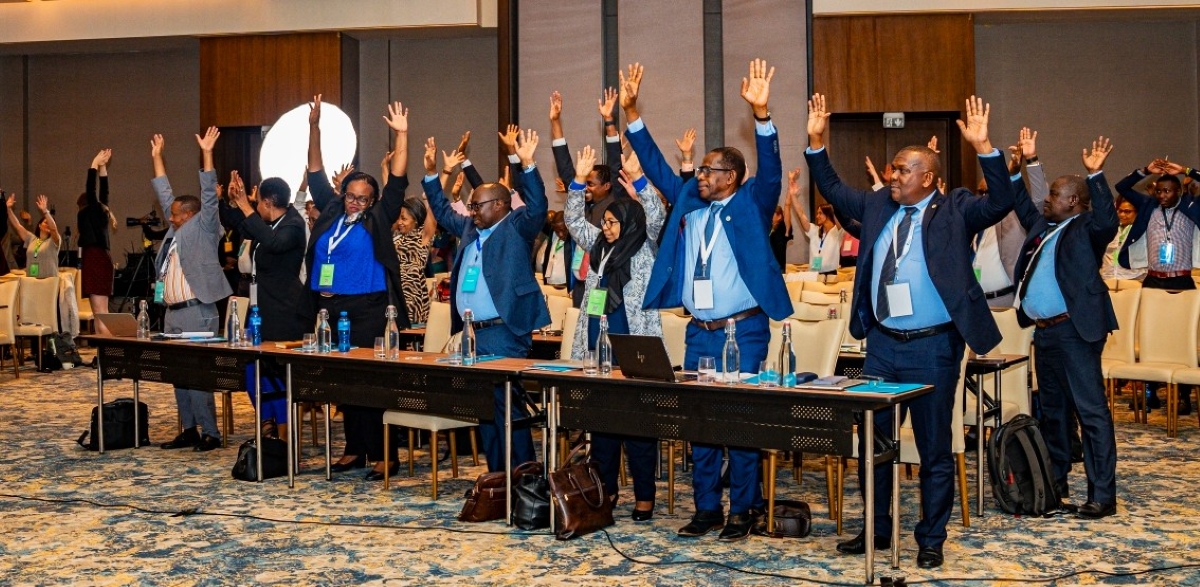Former Tanzanian President wants vulnerable groups taken aboard the new global mission to eradicate poverty
Former President of Tanzania, Jakaya Mrisho Kikwete has advised that as the world sets new measurements for global poverty levels, no vulnerable group should be left behind.
Kikwete made the stamen during the official opening of the International Conference on Poverty Evidence, organized by the Oxford Policy Management (OPM) in association with Data and Evidence to End Extreme Poverty (DEEP).
The former President said, African countries need to invest more in research to empower the youth in charting the next development direction towards reducing or totally eliminating poverty on the continent.
“Five years towards the 2030 deadline in achieving the United Nations Sustainable Development Goals, the world is still lagging behind, but this is due to the crisis experienced in the previous five years, including the global Covid-19 pandemic, geopolitical wars and negative effects of climate change,” stated Kikwete.
It was realized during the meeting that, with such rising challenges, maybe the 2030 SDG targets of reducing poverty may not be attained in time and that even the level of poverty measurement needs to be adjusted.
Apparently, a new benchmark for measuring poverty across the world has now been proposed in Arusha.
Under the new development, people considered to be living in extreme poverty are now being described to be those surviving under USD 3.0 per day.
Global economic experts and scholars meeting in Arusha have explained the new benchmark for measuring extreme poverty, which has now been adjusted from USD 1.25 per day, to USD 3.00 per day.
The Country Director for Oxford Policy Management (OPM) in Tanzania, Dr Charles Sokile stated here that in the past people living on less than USD 1.25 were considered to be under extreme poverty.
“But this measurement has now been reviewed and adjusted to USD 3.0 minimum, which is equivalent to TSH 7,800 as the benchmark for measuring poverty,” said Dr Sokile, adding that the new benchmark has taken into consideration global inflation, climate change, affecting agricultural outputs and emerging financial challenges.
Dr Sokile is among the economic experts gathering in the Northern Tanzanian City of Arusha to review achievements recorded in the global fight against poverty.
Apparently, Tanzania is hosting the International Conference on Poverty Evidence, organized by the Oxford Policy Management (OPM) in association with Data and Evidence to End Extreme Poverty (DEEP).
Experts have unanimously agreed that the previously set global target of eradicating poverty for all people by the year 2030 may no longer be attained, judging by a number of emerging challenges and non-anticipated stumbling blocks.
“The world has been experiencing some issues never expected before including the recent global Covid-19 pandemic, effects of climate change and geopolitical unrest,” explained Dr Donald Mmari the Executive Director of Research on Poverty Alleviation (REPOA), adding the population explosion is also a contributing factor.
Dr Mmari advised all African countries to speed up adjustments to their respective economic frameworks and financial systems to enable their citizens to improve their wellbeing.
On his part, Ernest Aryeetey an economic expert pointed out that while data indicates that global poverty rates are declining across the world, the number of people living in extreme scarcity is on the other hand, increasing.
“Governments need access to the latest measurement tools and research techniques so they can embed data and evidence into poverty reduction strategies – maximizing their effectiveness,” said Prof Aryeetey.
The Professor also called for investments in research which may come up with means for stretched budgets that can be targeted more effectively.
The experts attending the meeting in Arusha also reinforced the importance of proper and responsible government expenses to ensure even distribution of public services and shared wealth.
The United Nations Sustainable Development Goals (SDG) targeted that by 2030, countries should have reduced at least by half the proportion of men, women and children of all ages living in poverty in all its dimensions according to national definitions.

At the conference researchers from low- and middle-income countries (LMICs) and leading international poverty, data and research experts from the World Bank, University of Copenhagen, Cornell University and the University of Southampton (part of the DEEP consortium) are sharing the latest evidence and insights on effective strategies to address the interconnected drivers of poverty.
Delegates hailing from, Australia, Bangladesh, Canada, Ethiopia, India, Kenya, the Netherlands, Pakistan, Poland, the United Kingdom, United States and Tanzania, are also examining the cross-cutting drivers of poverty such as gender inequality, climate change and factors fueling rural and urban poverty for research to lead to actionable change that must be relevant to real-world problems and responsive to the needs of policy makers.
The Arusha conference will strengthen the link between research and policy by bringing together leaders, policymakers, practitioners and national and international researchers.
A series of country-focused panel discussions will facilitate dialogue between researchers and national policymakers from Tanzania, Ethiopia and Bangladesh. Learnings from these discussions will be used to inform research strategies and engagement in these and other DEEP-focus countries in the future.
In a context where development spending is under threat and government budgets are often tight, it is vital that money is effectively targeted, and policies and programs have the best chance of success.
The conference will demonstrate that investment in demand-led research and in national research capacity-building leads to interventions which are grounded in robust data and evidence and ultimately have the maximum impact on extreme poverty.

